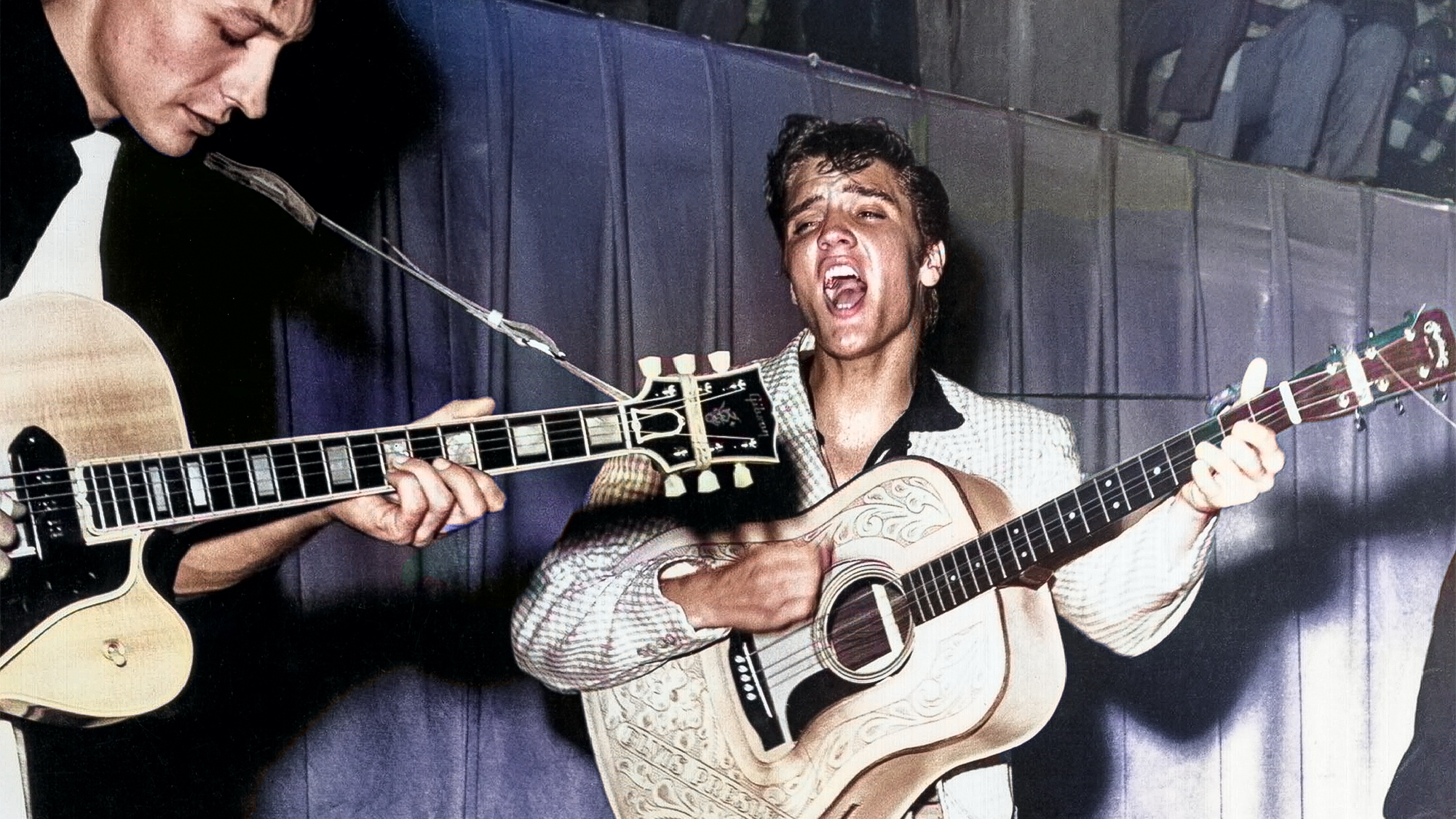“Occasionally one comes my way, and I’m like, 'Yeah, that needs to happen.’ This was one of those cases.” Samantha Fish on the guitar that became the heart and soul of her new album, ‘Paper Doll’
The blues shredder also reveals that her faithful cigar-box guitar may soon reach the end of its days on the road

All the latest guitar news, interviews, lessons, reviews, deals and more, direct to your inbox!
You are now subscribed
Your newsletter sign-up was successful
"I'm not a big gear person who goes and buys a new guitar every 15 minutes," Samantha Fish confesses via Zoom from her home in New Orleans. "It's usually once every couple of years. I have to think about it for a long time, and eventually the right guitar comes my way and that's The One."
It happened for Fish while making her new album, Paper Doll, when she laid her hands on a Silver Sparkle Gibson ES-335, courtesy of Eddie's Guitars near St. Louis. Before too long the guitar was getting a workout on the extended solo to the album track "Sweet Southern Sounds." As Fish explains, the ES-335 helped her capture an aspect of her live sound that's essential to her performance.
"I'm not usually drooling over guitars all the time," Fish says. “But occasionally one'll come my way and I'm like, 'Yeah, that needs to happen,' and this was one of those cases. I've been wanting one for a very long time because they give you that natural, resonant feedback as you're playing.”
Fish credits Luther Dickinson for showing her the light when he produced 2015’s Wild Heart and 2017’s Belle of the West.
“Luther hipped me to that style of guitar. I love how reactive they are, just because of how you can get a lot of sustain out of a guitar like that.”

Even so, it took years for her to take the plunge.
"It didn't immediately communicate that to me,” Fish admits. “If you're going based on looks alone, I think of a clean B.B. King tone, right? But if you really crank 'em up they just scream. I wanted that effect on ‘Sweet Southern Sounds.’ When you have a hollowbody, it's a little bit of a darker tone. There were just a lot of factors that pushed me in that direction. It was just about getting that massive sound.
All the latest guitar news, interviews, lessons, reviews, deals and more, direct to your inbox!
"Sweet Southern Sounds" reflects the goal Fish and producer Bobby Harlow had for Paper Doll. The album is the first time she and Harlow, who performs with Detroit rockers the Go, have worked together since 2017's Chills & Fever. They reconnected when Fish performed in Detroit while touring in support of 2023's Death Wish Blues, her Grammy Award–nominated collaboration with Jesse Dayton.
"That was a real rockin', just raucous show," Fish recalls, "and afterwards Bobby said, 'You've got to figure out how to put that on a record — just contain that energy!'
"It's nice working with somebody who really loves and believes in you. Bobby's got this unmatched enthusiasm. He's super passionate when he gets involved in things, and it's a great experience."
The idea on Paper Doll, Fish says, was "to lean into what people really know me for in my live shows. That's something I've heard over the years; people really, really love the live show and how it moves. I just wanted to give them something that felt like what they get when they come to a show. I wanted it to be really live and organic and powerful."
Using her touring band, Fish "leaned into my guitar playing" throughout Paper Doll, which also includes a guest appearance from Mick Collins (the Gories, the Dirtbombs) on the garage-flavored track "Rusty Razor."
"Sweet Southern Sounds," meanwhile, was a song that she says "really resonated with everybody. It's obvious were not using a click track on the record, 'cause that one speeds up at the end of the song, and I'm stretching out on the solo to be able to really tell a story.
"But that adds to the live feeling. We do that in the show sometimes, like going into these subtle tempo shifts to get us to the next place and the next song."
The solo was imposing, however, 335 in hand or not.
"It was one Bobby was so nervous about,” Fish recalls “He was saying, ‘We’re gonna have to really think about how you're gonna almost build it up too much.
“I remember him coming into the studio and turning off the lights and creating an ambience so I could go do it. I think we felt like it had to be so epic.”
To their surprise, FIsh pulled it off in two or three takes.
“Just 'cause, naturally, it's in my wheelhouse of what I like to do and what I've been doing in my show,” she explains. “Still, it was funny. We thought it would take hours and hours and days and days, and it came together so naturally, which is really what you want — something that just feels good the first time through."
The 335 is now a valued part of what Fish considers "a pretty reasonable collection" that continues to grow, albeit at a gradual pace.
"I don't get rid of much," she confesses. "I've been thinking about how I probably should get rid of some of these guitars that I don't play, but they end up being beautiful wall hangers. My whole house is decked out in wall-hanger guitars. I struggle to let things go. I'm sure a lot of people do, 'cause everything has a memory attached to it. It's kind of a heavy thing."
Among the other prized possessions on Fish's wall are her cigar-box guitars, which she's collected over the years. She's still using the one she bought in 2012 from Stogie Box Blues, which has a P Bass pickup and a floating bridge. But Fish adds that its days feel numbered.
"It's totally duct-taped and screwed together," she says. "It’s falling apart, but I think it makes it sound better, the deterioration. It's becoming like a 1930s Martin or something. They do deteriorate. It’s very lightweight. It's a cigar box, right?
"I've been the recipient of many beautiful cigar boxes over the years, from these wonderful people. They're all very unique and interesting. Some of them are magnificent, honestly. But I'm just so attached to the way mine sounds. I know at some point when it dies I'm gonna have to go down to my arsenal of beautiful cigar boxes and say, 'Who's up next? Who's gonna fill the void for the next 10, 15 years?'
"And this one will be a beautiful wall-hanger someday."
Gary Graff is an award-winning Detroit-based music journalist and author who writes for a variety of print, online and broadcast outlets. He has written and collaborated on books about Alice Cooper, Neil Young, Bob Seger, Bruce Springsteen and Rock 'n' Roll Myths. He's also the founding editor of the award-winning MusicHound Essential Album Guide series and of the new 501 Essential Albums series. Graff is also a co-founder and co-producer of the annual Detroit Music Awards.



